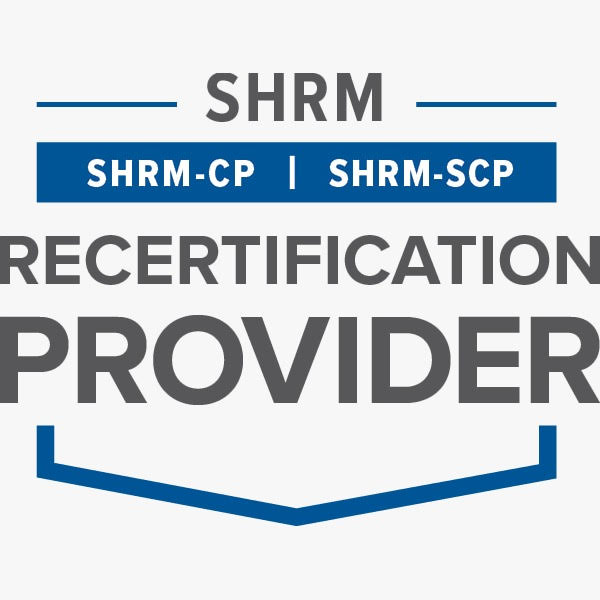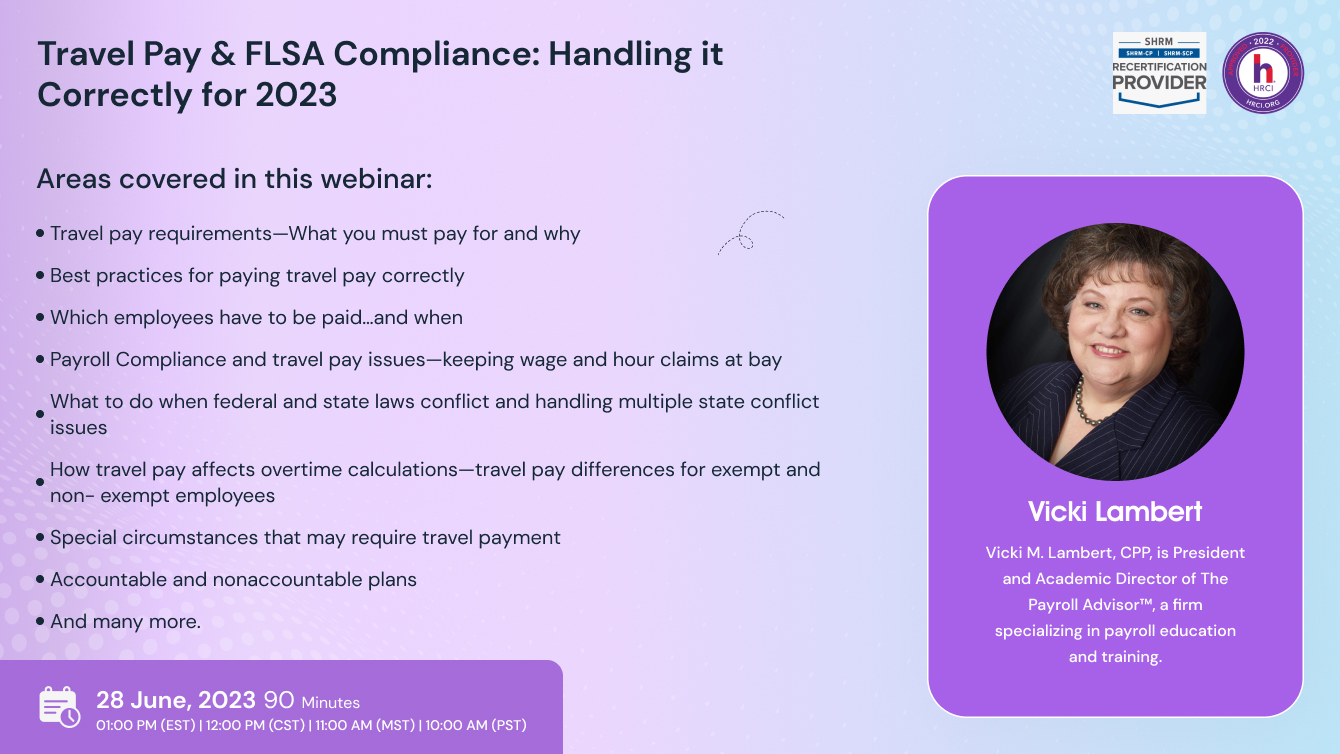Overview:
This webinar discusses the rules and regulations that must be followed when paying an employee for travel pay. It includes what is travel pay, best practices for handling the payments, how it affects overtime calculations and what is required on the state level. It also discusses the requirements for taxing travel expenses under IRS rules.
Background:
How to compensate employees for the hours spent traveling on business is becoming one of the major concerns of the payroll department today. Many recent changes in federal and state wage and hour rules as well as economic pressures on employers and employees alike can create a situation that can practically invite noncompliance lawsuits—especially if the travel time results in overtime being owed to the employee.
But it isn’t just the DOL that is interested in travel pay. The IRS also has strict regulations on when employees can be paid for travel expenses without it being considered wages. Does the company use the per diem method to reimburse employees or the accountable plan method? Or do you even need to have a method when it comes to reimbursing employees for travel expenses?
Areas covered in this webinar:
-Travel pay requirements—What you must pay for and why
-Best practices for paying travel pay correctly
-Which employees have to be paid…and when
-Payroll Compliance and travel pay issues—keeping wage and hour claims at bay
-What to do when federal and state laws conflict and handling multiple state conflict issues
-How travel pay affects overtime calculations—travel pay differences for exempt and non- exempt employees
-Special circumstances that may require travel payment
-What are per diems
-When travel payments are taxable
-Accountable and nonaccountable plans
Suggested Attendees:
-Payroll Executives/Managers/Administrators/Professionals/Practitioners/Entry Level Personnel
-Human Resources Executives/Managers/Administrators
-Accounting Personnel
-Business Owners/Executive Officers/Operations and Departmental Managers
-Lawmakers
-Attorneys/Legal Professionals
Any individual or entity that must deal with the complexities and requirements of Payroll Compliance issues

Vicki Lambert
Vicki M. Lambert, CPP, is President and Academic Director of The Payroll Advisor™, a firm specializing in payroll education and training. The company’s website www.thepayrolladvisor.com offers a payroll news service which keeps payroll professionals up-to-date on the latest rules and regulations.
With nearly 40 years of hands-on experience in all facets of payroll functions as well as over three decades as a trainer and author, Ms. Lambert has become the most sought-after and respected voice in the practice and management of payroll issues. She has conducted open market training seminars on payroll issues across the United States that have been attended by executives and professionals from some of the most prestigious firms in business today.
A pioneer in electronic and online education, Ms. Lambert produces and presents payroll-related audio seminars, webinars, and webcasts for clients, APA chapters, and business groups throughout the country. Ms. Lambert is an adjunct faculty member at Brandman University in Southern California and is the creator of and instructor for their Practical Payroll Online program, which is approved for recertification hours by the APA. She is also the instructor for the American Payroll Association’s “PayTrain” online program also offered by Brandman University.

SHRM-
Standeagle is recognized by SHRM to offer Professional Development Credits (PDCs) for the SHRM-CPSM or SHRM-SCPSM.
This program is valid for 1.5 PDCs for the SHRM-CPSM or SHRM-SCPSM. For more information about certification or recertification, please visit - portal.shrm.org.

HRCI -
This webinar has been approved for 1.5 HR (General) re-certification credit hours toward California, GPHR, HRBP, HRMP, PHR, and SPHR recertification through the HR Certification Institute.
The use of this seal is not an endorsement by the HR Certification Institute of the quality of the activity. It means that this activity has met the HR Certification Institute’s criteria to be pre-approved for re-certification credit.

ACCREDITATIONS


